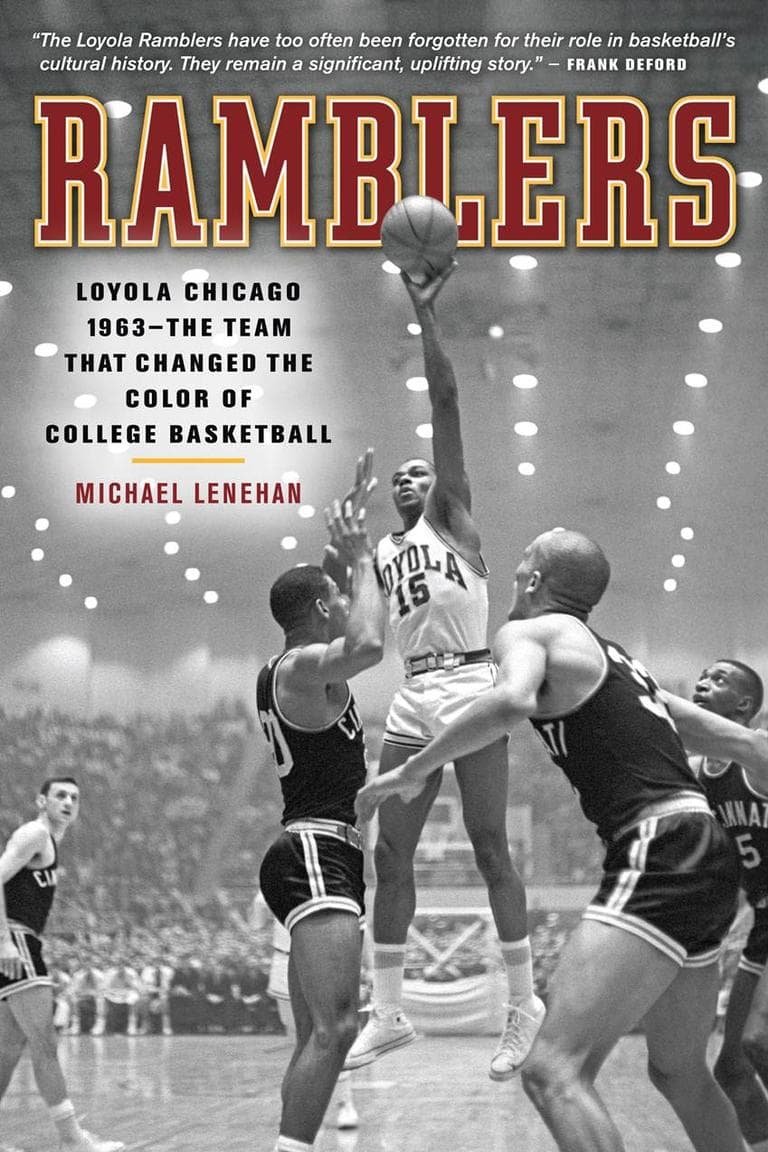Advertisement
Featured Book
'Ramblers': The Story Of A Trailblazing Team
ResumeIn 1963, Loyola University Chicago topped two-time defending champion Cincinnati to win the NCAA tournament for the first time in program history. Even more historic than the Ramblers' victory was the team's starting lineup, which featured four black players.
Author Michael Lenehan chronicles the historic season in his recent book Ramblers: Loyola Chicago 1963 — The Team That Changed the Color of College Basketball. Lenehan joins Bill Littlefield to discuss the book and race in college basketball.
In part, Ramblers, subtitled "Loyola Chicago 1963 – the Team that Changed the Color of College Basketball," is about precisely what that subtitle suggests. Fifty years ago, Loyola and Cincinnati, the two teams meeting in the NCAA tournament final, combined to put seven black players on the floor at the same time. It was an era when lots of colleges – and college basketball teams - were segregated, and coaches at lots of programs that weren't segregated were careful to limit the number of black players, either because they had to be, or because they thought they had to be, or because they simply preferred it that way. The game between Loyola and Cincinnati presented those watching the tournament with something they'd not seen before.
But Ramblers is about much more than a particular game. It is about the second-class citizenship endured by black players at southern colleges the NCAA wouldn't even recognize. It is about the prejudice black players encountered when they went to schools like Loyola, where they were valued for their basketball skills but prohibited from eating in the same restaurants, staying in the same hotels, or dancing with the same women as their white teammates. And it is about the determination of those who went about changing those conditions.
Michael Lenehan recognizes the necessity of context, and one of the most compelling stories in Ramblers involves the men's basketball team at Mississippi State University. Lenehan writes at length about how the team was prevented in the early ‘60s by custom and prejudice from competing in the NCAA tournament because to do so would have meant sharing the court with integrated teams. But in 1963, the team from Mississippi State defied a court injunction and flew to Michigan to play Loyola in a regional game. They were welcomed when they got there. They lost. Then they were welcomed when they got back home. Fairly shortly thereafter, according to Lenehan, Mississippi State enrolled black students for the first time.
In the foreword to his book, Lenehan discounts the hyperbole of other books that have been advertised as stories of games that "changed America forever" or championships that "revolutionized college basketball." "A book like this is obliged to make such a claim on its cover," he writes, "but we all know better: basketball, never mind America, is not transformed by a single game or team or season."
Of course he's right, but it's fine and fortunate for his readers that Michael Lenehan has seen fit to remind us of this nation's often disgraceful and sometimes encouraging history as it has been reflected in one of our most popular games.
This segment aired on March 16, 2013.

